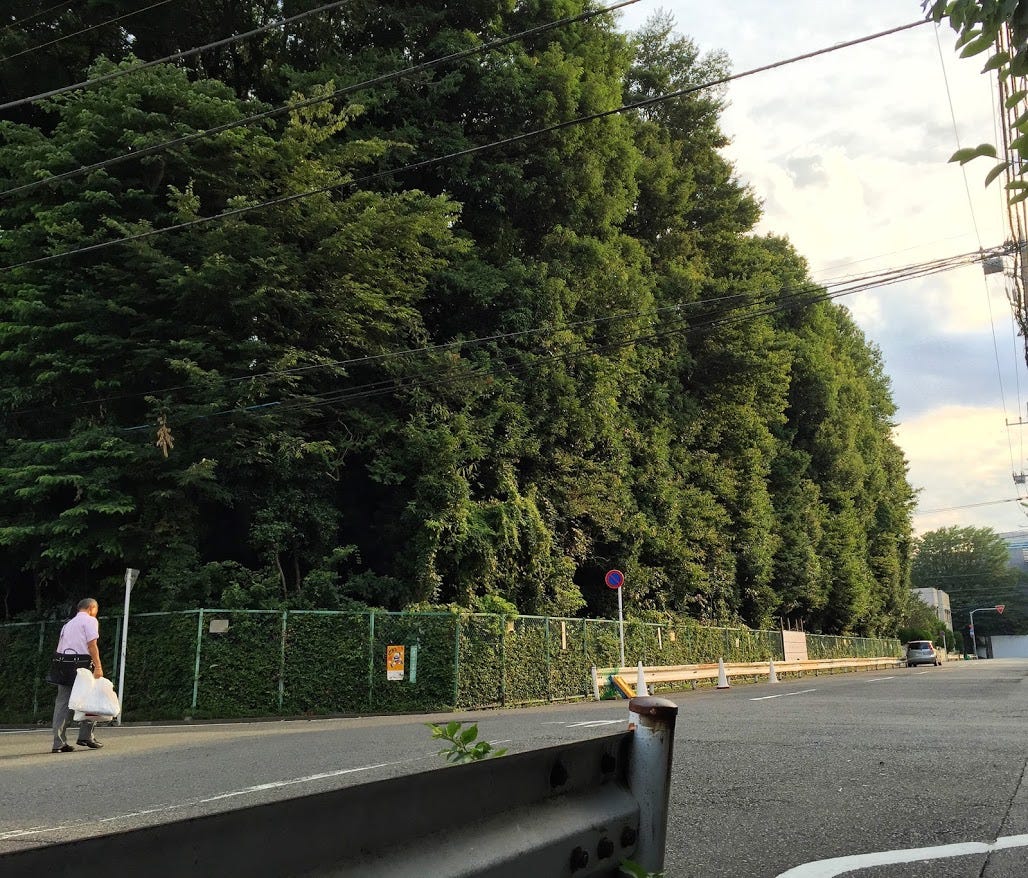Transmission #15: DIY forestry, mobility/scooters, Blockbuster video and Susan Orlean.
Design, ideas and other flotsam.
Hello. Welcome.
This is Transmissions by me, Martin Brown. Father. Husband. Design Lead at Craig Walker and lecturer at RMIT. Marty to most.
This is an ongoing fortnightly newsletter that collates some of the more interesting stories, links, quotes and other curios that float my way.
If you’re new here, then sign up now to get more of these in your inbox, and don’t forget to tell your friends!
Design
The Miyawaki Method: A Better Way to Build Forests?
Lela Nargi, Jstor
A DIY approach to rewilding: take a piece of land – any size really – and grow a forest on it. Akira Miyawaki, a former Toyota engineer, has created a repeatable system literally from the ground up. Start with the soil, scatter a careful range of native plant seeds and seedlings, then water and weed regularly, and watch as the natural competition for sunlight takes hold, and the forest grows 10x as fast and 30x as dense as other forms of forestry. Now formalised as an open-source operating procedure that’s being deployed around the world. Inspired? Go to afforestt.com and follow the instructions to create your own.
You can't disrupt the city
Ian Dull & Jeff Risom, ReD
A call for an ethnographic approach to urbanism. Big, VC-backed mobility disruptors are doomed, because they oversimplify the unique, pre-existing and complex fabric of cities. We need a more nuanced approach.
Yet cities aren’t hardware searching for better software; nor do they represent the blank canvas of the internet. They are complex, living organisms – made up of users, yes – but also citizens, governments, laws, and mountains of cultural and political baggage. In their goal of dominating every city, mobility disrupters have often forgotten what it means for people to move around their own cities.
Ideas
Life in the Stacks: A Love Letter to Browsing
Jason Guriel, The Walrus
A paean to the art of browsing. The notion that in switching from a large, but manageable selection of choices (think Blockbuster) to practically infinite (the internet), we’ve lost something important. This feels like a highly generation-specific take, but will resonate with basically anyone from their mid-thirties upwards.
But speed of scrolling, algorithmic assistance, and instant access weren’t what my friends and I needed, even if we might’ve welcomed them as conveniences. We needed that long subway trip downtown. We needed the sobering disappointments and sporadic victories. We needed the longueurs that new technology seeks to close, as if abolishing boredom ever does anyone a favour. Mostly, we needed wind resistance. It took effort to cultivate our enthusiasms in a desert, but it’s clear now that we took the desert’s role for granted. Knowledge tends to stick when you’ve toiled for it.
From the archive
Orchid Fever
Susan Orlean, The New Yorker, 1995
The article that inspired the book that inspired Charlie Kaufman to write the screenplay for Adaptation. It’s a masterpiece in character study.
Laroche grew up in Miami. He says he was a weird kid. This is not hard to believe. When he wanted a pet, he bought a little turtle, then bought ten little turtles, then tried to breed them, then started selling turtles to other kids, then decided his life wasn’t worth living unless he acquired one of every species of rare turtle, including a three-hundred-pound exotic tortoise from the Galapagos Islands. Suddenly, another passion seized him. He became immersed in late-Ice Age fossils. Then he dropped turtles and Ice Age fossils and became obsessed with lapidary, and then after a while he dropped lapidary and got into collecting and resilvering old mirrors. His passions boil up quickly and end abruptly, like tornadoes.
Quotes
"Cultures do not change when people replace old ideas with new ones; cultures change when people with new ideas replace the people with old ones."
– Culture Wars are Long Wars, Tanner Greer, reflecting on the chart below
Chart of the Week
In another strike against the Malthusians (*shakes fist*) and proponents of all-organic farming (*smiles politely*), this chart shows how more efficient methods of agriculture have saved billions of hectares of land use. What it doesn’t account for, however, is the increased need, and extreme inefficiency, of growing cereals as feedstock for the animals we increasingly choose to eat.
Other
👭 Holly Herndon has created a digital clone of her voice for other artists to use, and is ceding control of its oversight to decentralised system of governance, a DAO. Link
🔥 The hottest temperature that the human body can withstand is around 35°C on a wet bulb scale (a bit over 50°C on the dry bulb scale, but humidity is the crucial factor here). And there are inhabited places in the world where the temperature regularly rises above this threshold. Link
🕹 Gamers are better at catching fraud than scientists. TLDR there are better incentives for managing fraud in online worlds. Link
🪦 The extraordinary story of a French woman who has been trying for 17 years to prove to authorities that she is, in fact, not dead. Link
Liked the newsletter? Share it!








